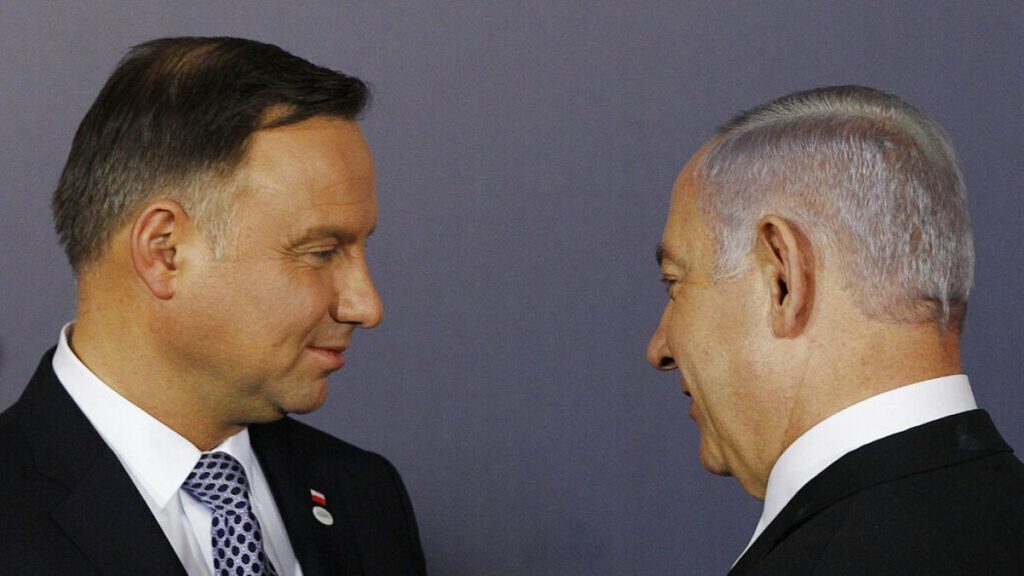The impending 80th anniversary of the liberation of Auschwitz-Birkenau has sparked a diplomatic quandary involving Poland, Israel, and the International Criminal Court (ICC). At the heart of the matter is an ICC arrest warrant issued for Israeli Prime Minister Benjamin Netanyahu, raising questions about his potential attendance at the commemorative event and Poland’s obligations as an ICC member state. Polish President Andrzej Duda has requested the government to ensure Netanyahu’s safe passage and participation should he choose to attend, emphasizing the significance of the occasion for Israeli representatives. This request has created a complex situation given the ICC’s expectations of member states to detain individuals under warrant.
The ICC warrants, issued in November, target Netanyahu, his former defense minister, and a Hamas leader for alleged war crimes and crimes against humanity during the 2014 Gaza conflict. This legal action complicates Netanyahu’s potential presence at the Auschwitz commemoration, a highly symbolic event given the historical atrocities committed against the Jewish people during the Holocaust. President Duda’s intervention reflects a delicate balancing act between upholding international legal obligations and recognizing the profound importance of the Auschwitz anniversary for Israel. The request, conveyed to Prime Minister Donald Tusk’s government, highlights the sensitive political considerations surrounding this issue.
The ICC’s jurisdiction and enforcement mechanisms present a further layer of complexity. While the court has issued the warrants, it lacks the power to directly enforce them, relying on member states to cooperate. Israel, notably, is not an ICC member and contests the court’s authority in this matter. This stance, coupled with the lack of direct enforcement power, creates ambiguity regarding the potential consequences should Netanyahu enter Polish territory. The situation is further complicated by the varying responses of other ICC member states. Some, like France and Hungary, have indicated they would not arrest Netanyahu, with Hungary’s Prime Minister even extending an invitation to him. This divergence in approach underscores the challenges posed by the ICC’s framework in practice.
Poland’s official position remains cautious. The Foreign Ministry has stated it has no confirmation of Netanyahu’s intention to attend the commemoration and emphasized that Poland is a safe country providing protection to visiting leaders. This statement avoids directly addressing the question of the arrest warrant while reiterating Poland’s commitment to security. The Ministry’s response reflects the government’s careful navigation of this sensitive diplomatic situation, seeking to avoid escalating tensions while fulfilling its responsibilities as host of the commemoration.
The Auschwitz-Birkenau anniversary itself carries immense historical weight. The commemoration, scheduled for January 27th in Oswiecim, the town where the Nazi death camp was located, will gather international officials and Holocaust survivors to remember the victims of this horrific chapter in history. Over 1.1 million people were murdered at Auschwitz, the majority of whom were Jewish. This event serves as a stark reminder of the Holocaust’s devastating impact and the importance of remembering its victims. The potential presence of the Israeli Prime Minister, given his country’s historical connection to the Holocaust, adds a significant dimension to the commemoration.
The confluence of the ICC warrant, President Duda’s request, and the historical significance of the Auschwitz anniversary creates a complex diplomatic scenario. The Polish government’s response to President Duda’s request will be closely watched, as it will signal Poland’s approach to balancing its international legal obligations as an ICC member with the sensitive political considerations surrounding the commemoration. The ultimate decision regarding Netanyahu’s attendance rests with the Israeli government, but the situation highlights the challenges inherent in enforcing international law, particularly when it intersects with deeply symbolic events and complex political relationships. The Auschwitz anniversary, a solemn occasion for remembrance and reflection, has become the backdrop for a diplomatic dilemma with far-reaching implications.

